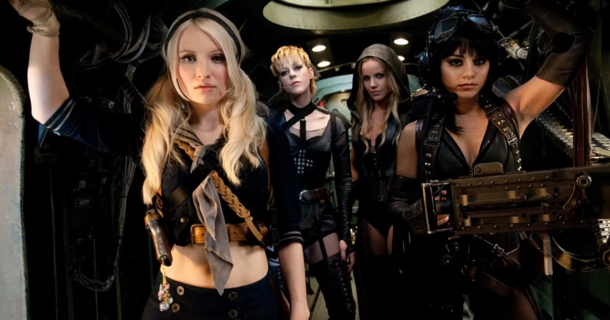Not Only Fight Club: 4 Movies Based on the Unreliable Narrator Trope

Don't believe them.
The voice of the narrator is usually trusted. Whoever that voice belongs to, it serves as an indispensable guide for the viewer: it describes the characters, gives important clues, and helps to understand what is happening on screen.
But there are also narrators who deliberately lie to the viewer, or simply make mistakes by having incomplete information or misinterpreting the facts.
1. Sucker Punch, 2011
A girl nicknamed Babydoll ends up in a mental hospital, accused of murdering her sister, which was actually committed by her stepfather. But was it really like that?
Instead of a mental hospital, she keeps imagining herself in a brothel club, where she has to entertain the guests by dancing. And when Babydoll dances, she falls into a completely crazy fantasy reality, where the motives of feudal Japan, scenes from the First World War and futuristic high-tech with robots are mixed.
2. Secret Window, 2004
Writer Mort Rainey lives in a lake house. His marriage is falling apart, his new novel is failing, and on top of it all, a sinister Southerner named John Shooter arrives – a man in a black hat who accuses Mort of stealing his story and threatens terrible punishment for plagiarism.
Rainey is ready to prove that this is a mistake, and that his story with a similar plot was published in a literary magazine two years before Shooter's.
But while the ordered copy of the magazine arrives, the madman in the hat, unwilling to wait, kills Mort's dog and then takes on his relatives and friends.
3. Life of Pi, 2012
Pi tells the reporter the story of his miraculous rescue. The ship carrying his family and the zoo animals sank, and he was forced to cross the ocean in a boat with a tiger, a monkey, a zebra, and a hyena.
The story sounds too exotic to be true, and the official version, which Pi has told before, sounds much darker. So which version to believe? The narrator doesn't care: believe the one you can stand.
4. A Beautiful Mind, 2001
From worldwide fame to the depths of sin, John Nash learned the hard way. The mathematical genius receives a blow that changes his life.
Director Ron Howard has never denied that he slightly twisted the story of the real John Nash and added Nikola Tesla traits to him. But, according to the director, it is the trope of the "unreliable narrator" that makes John's story especially interesting – and, what can we say, it is really hard to argue with that.